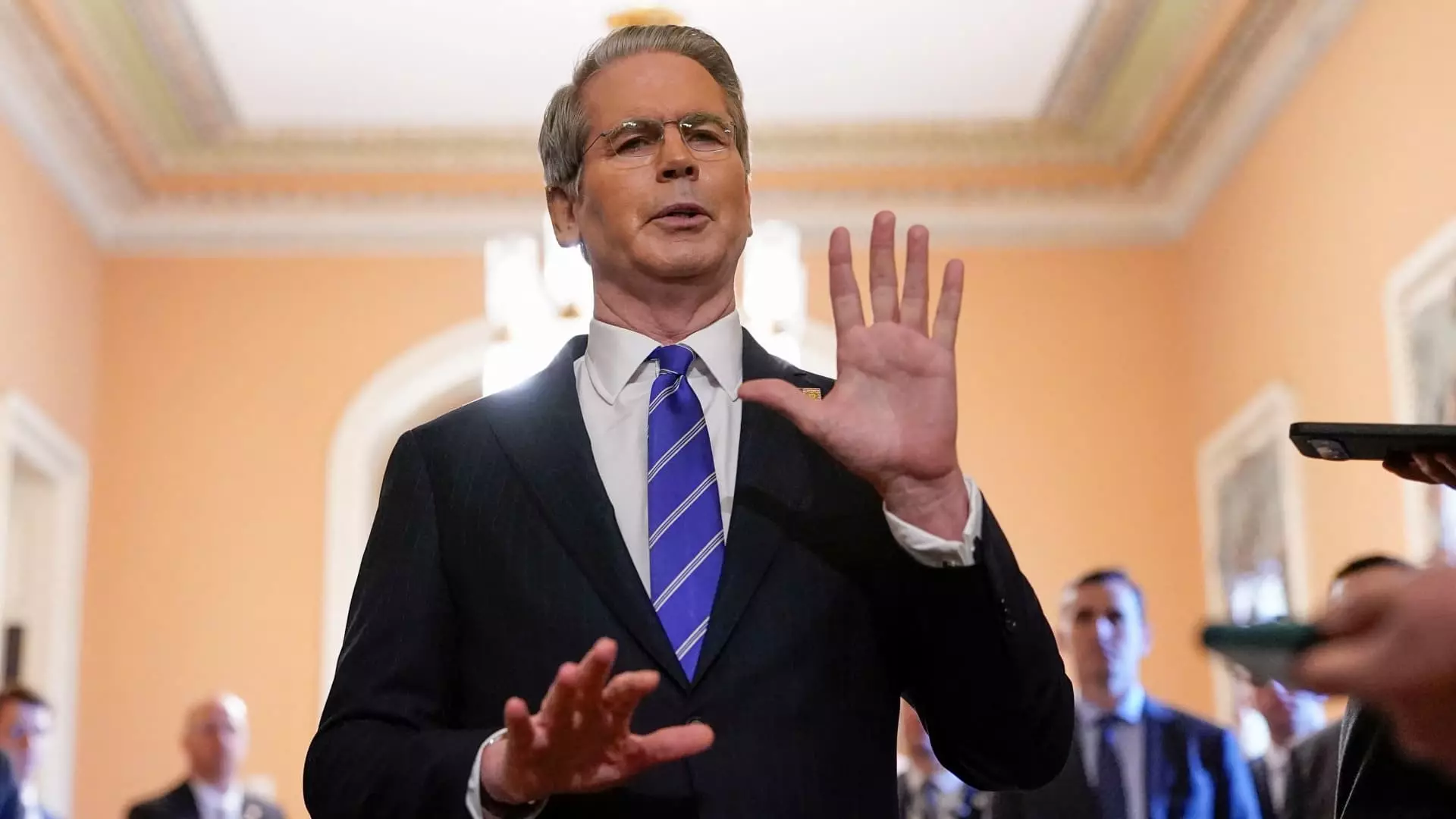In recent weeks, the U.S. government’s aggressive stance on tariffs has cast a long shadow over the stability of international commerce. The Administration’s strategy, characterized by threats of escalating tariffs if negotiations falter, signifies a troubling shift toward economic brinkmanship. While some may argue these tactics leverage necessary pressure to reform trade imbalances, they also risk sowing chaos in the highly interconnected world economy. It is imperative to recognize that such a confrontational approach, particularly when cloaked in ultimatums and deadlines, undermines the very foundations of predictable and sustainable trade relationships.
The indication that tariffs could revert to higher levels if trading partners do not meet demands signals a game of high-stakes bluffing. U.S. officials, like Treasury Secretary Scott Bessent, have openly warned that non-compliance will trigger a rollback to earlier tariff rates, effectively pressing allies and rivals alike to capitulate or face economic retaliation. This strategy, while perhaps aimed at renegotiating fairer terms, risks hurling global markets into turmoil as uncertainty ascends to new heights. The assumption that such brinkmanship will ultimately produce a more advantageous deal ignores the profound risks of escalating trade conflicts that could damage economies, jobs, and consumers worldwide.
The Illusion of Negotiation Amidst Threats
The administration frames these tariff warnings as a means to expedite negotiations, a narrative that masks the underlying tension and the potential for souring relations even further. Pledges of “big announcements” and promises of rapid deals give the impression that a diplomatic breakthrough is imminent. Yet, the reality is that the current approach heavily relies on coercive leverage rather than genuine cooperation. The administration’s refusal to extend goodwill or offer tangible compromises signals a posture rooted more in political posturing than in the pursuit of mutually beneficial solutions.
Furthermore, the timing of these tariffs is symptomatic of a broader reluctance to embrace multilateralism. The historic trend of collaborative trade agreements is replaced by unilateral threats, risking isolating the U.S. from its traditional allies. This antagonistic stance fosters an environment where trust erodes, and retaliatory measures deepen the divide. For many in the center of the political spectrum, this signals a disconcerting departure from the principles of fair negotiation, emphasizing power and dominance over diplomacy and mutual respect.
The Cost of Economic Confrontation
The impact of these threatened tariffs extends beyond the immediate financial calculus; it endangers the stability of the global economic order. Markets respond poorly to uncertainty, and the threat of retaliatory tariffs creates a climate where investment, innovation, and international cooperation suffer. While the administration touts the potential for revenue generation from increased tariffs, the broader consequences—rising consumer prices, disrupted supply chains, and strained diplomatic ties—pose far graver concerns.
A centrist, liberal perspective recognizes the importance of balancing national interests with the global good. Pursuing short-term leverage at the expense of long-term relationships may yield tactical wins but risks strategic losses that could take years to repair. If dialogue is replaced by threats and deadlines, a more insidious cost manifests: the deterioration of trust among global partners, which is essential for tackling common challenges like climate change, economic inequality, and technological innovation.
In this tense climate, it is crucial for the U.S. to reconsider its approach. Embracing diplomacy, fostering cooperation, and recognizing the mutual benefits of open economies are essential to forging resilient trade relationships that serve not just national interests, but the collective good of the international community.


Leave a Reply